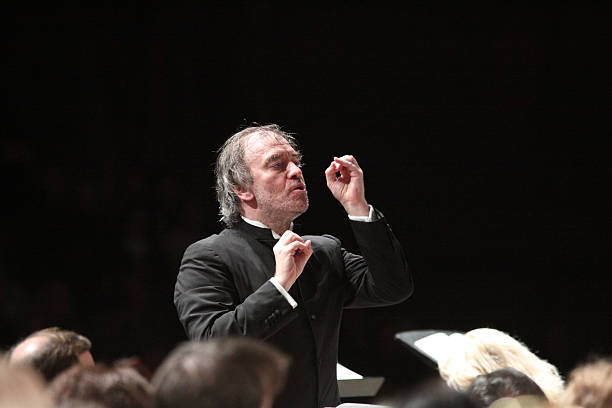Gergiev, Mariinsky Orchestra offer a generous concert at Broward Center
In the midst of an extensive American tour, Russia’s Mariinsky Orchestra touched down in Fort Lauderdale Tuesday night. The occasion was a concert in memory of Dr. M. Lee Pearce, a Miami Beach resident and longtime supporter of the St. Petersburg-based ensemble. The performance at the Broward Center was presented by the Mariinsky Foundation and was the orchestra’s only Florida appearance this season.
Veteran artistic director Valery Gergiev was on the podium and, even with the withdrawal of pianist Alexander Toradze (who was scheduled to play Prokofiev’s Concerto No. 3) due to a hand injury, the program was generous and substantial, lasting nearly three hours with one intermission.
Although no announcement was made, the scheduled Prelude to Act III of Lohengrin was replaced by the Act I Prelude to Wagner’s opera. An experienced Wagnerian, Gergiev moulded the score in long, eloquent and spacious paragraphs. The strings’ glowing tone was enhanced by the clarity of individual timbres and lines, particularly between first and second violins. Gergiev masterfully controlled the orchestra’s emphatic brass section, never allowing it to overwhelm the inner wind voices.
Principal trumpet Timur Martynov soloed in the final Allegro from Haydn’s Trumpet Concerto in E-flat Major. Martynov’s sound is mellow rather than brilliant but he was fully equal to the speed and bravura ornaments of Haydn’s boisterous rondo. Gergiev showed himself unexpectedly deft in this Classical era repertoire, his brisk tempo and reduced forces capturing Haydn’s cheerful vigor.
Debussy’s Prelude à l’Après d’un faune (Prelude to the Afternoon of a Faun) was played almost twice as slowly as in most readings. Gergiev drew out the flute and harp motifs and maintained meticulous control over the instrumental strands. Debussy’s impressionistic miniature was infused by a myriad range of orchestral colors. The solo flute and other wind timbres are darker than one hears in most Western ensembles and the orchestra’s signature burnished, molten string tone really took wing.
Two singers from the Mariinsky’s Atkins Young Artists training program were soloists in operatic excerpts. Dmitry Grigoriev sang Prince Gremin’s aria from Tchaikovsky’s Eugene Onegin. A typically deep Slavic bass, his gravelly low notes were matched by an upper register that is almost baritonal. Grigoriev captured the noble dignity of the aging prince’s monologue.
Coloratura soprano Aigul Khismatullina was nothing short of stunning in “Grossmächtige Prinzessin,” Zerbinetta’s aria from Strauss’s Ariadne auf Naxos. This young soprano has already assayed Mozart’s Queen of the Night, Verdi’s Gilda and the title role of the nightingale in a Mariinsky revival of Stravinsky’s Le Rossignol. Khismatullina’s pretty soubrette timbre, charming stage presence and cleanly articulated notes easily conquered the minefield of Strauss’s 14-minute coloratura showpiece. A chorus of bravos and a well deserved standing ovation followed her tour de force performance.
Perhaps to compensate for Toradze’s cancellation, Gergiev led almost half of the first act of Tchaikovsky’s Nutcracker ballet score (instead of just the “Waltz of the Snowflakes” that was originally programmed). The sequence opened with the heroine Clara’s sleep music, followed by her nightmare of the battle between the armies of the Nutcracker and the Mouse King, the music for the Nutcracker’s transformation into a prince and the entire snow scene.
Gergiev is a master of this repertoire and, despite the fact that the players must have played this music hundreds of times from both the pit and the stage, there was nothing rote or routine about their reading. There was rhythmic flair aplenty in the battle music which seemed to burst forth off the stage in its sheer balletic energy. The “Journey to the Land of the Snow” interlude introduces one of Tchaikovsky’s most beautiful melodies, which is rarely heard except in complete perennial holiday performances of the ballet. Gergiev’s forward-flowing tempo allowed the music to grow organically to the full orchestral climax without overstated flashiness.
It was a pleasure to hear the part for children’s chorus sculpted by such multihued winds and brass. Special credit to Sofia Kipskaya and Elena Klass for the transparent, finely rendered harp glissandos.
The concert’s main event was a riveting performance of Strauss’s Ein Heldenleben (A Hero’s Life). In this most egotistical of his tone poems, Strauss imagines himself as soldier, lover and artist. From the first bars, Gergiev went for big, bold accents. There was not much Viennese gemütlichkeit in this reading but there was an almost manic intensity that never let up right through the score’s autumnal final pages.
The sound of the full ensemble was thrilling. Braying winds mimicked the protagonist’s critics to witty effect and the five percussionists had a field day in the battle sequence. When the theme from Strauss’s Don Juan peeled forth from the horns, the sonority was heroic indeed.
Gergiev’s supple control of dynamic extremes ran the full gamut from merely whispered strains to ear shattering thrusts. Concertmaster Lorenz Nasturica-Herschcowici was magnificent in the score’s many solos. A violinist of soloist caliber, his rounded vibrato and sweetness of tone were a constant delight and he threw off the virtuosic passages with panache. Kudos to the cellos for depth of sonority and intensity in a performance replete with outstanding playing from all sections.
For an encore, Gergiev again showcased Nasturica-Herschcowici in the Romance from Shostakovich’s score for the film, The Gadfly. He told the audience that this vignette was the favorite piece of Dr. Pearce who he described as “a great friend, great man and great music lover.” In this lushly romantic melody in Shostakovich’s most populist vein, both the concertmaster and full string section soared without exaggerating the sugary cinematic coating.
Posted in Performances
Leave a Comment
Wed Oct 31, 2018
at 12:30 pm
No Comments







